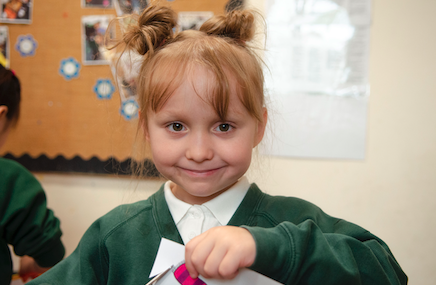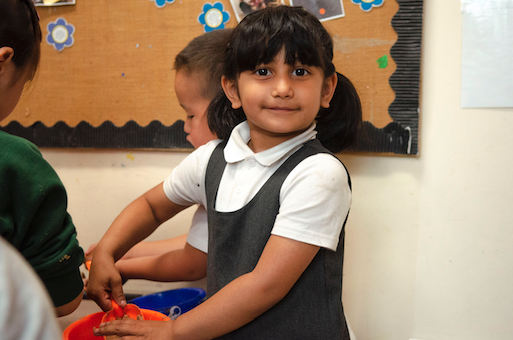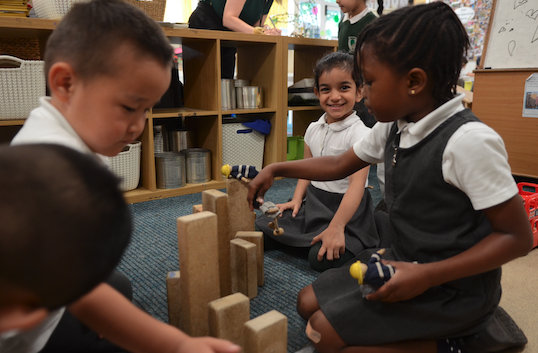


The Early Years Foundation Stage The Early Years Foundation Stage (EYFS) applies to children from birth, up until the summer after their fifth birthday. The foundation stage at Cheetwood Primary School can facilitate
up to 56 pupils, 26 pupils in Foundation Stage 1 (nursery) and 30 pupils in Foundation Stage 2 (reception). The unit is staffed by two teachers and three full time teaching assistants. A rich and stimulating indoor and outdoor learning
environment is provided. The children have continuous access to all areas and are supported by careful planning and organisation of staff and resources to enrich their learning. In EYFS we follow a statutory framework that sets
out the learning, development and assessments for children aged birth to 5. The government has recently changed the statutory framework and the non-statutory guidance called Development Matters in the Early Years Foundation Stage,
which supports practitioners in implementing the statutory requirements. These changes will become statutory for all early years settings in September 2021. However, the government has offered schools the chance to adopt the
framework one year early – this academic year. As a result Cheetwood has opted to become one of the ‘Early Adopter’ schools and we will be teaching towards the new Early Learning Goals. The
characteristics of effective teaching and learning are a key element in the early years’ foundation stage and detail the ways in which children learn from their environment, experiences and activities.
The characteristics of effective learning are split into three main areas:
- Playing and exploring which focuses on how children will be learning to explore and experience things, and ‘have a go’
- Active learning which focuses on how children will be learning to concentrate and keep on trying if they encounter difficulties, and enjoy their achievements
- Creating and thinking critically which focuses on how children will be learning to have and develop their own ideas, make links between ideas, and develop strategies for doing things
- A Unique Child
- Positive Relationships
- Enabling Environments
- Learning and Development